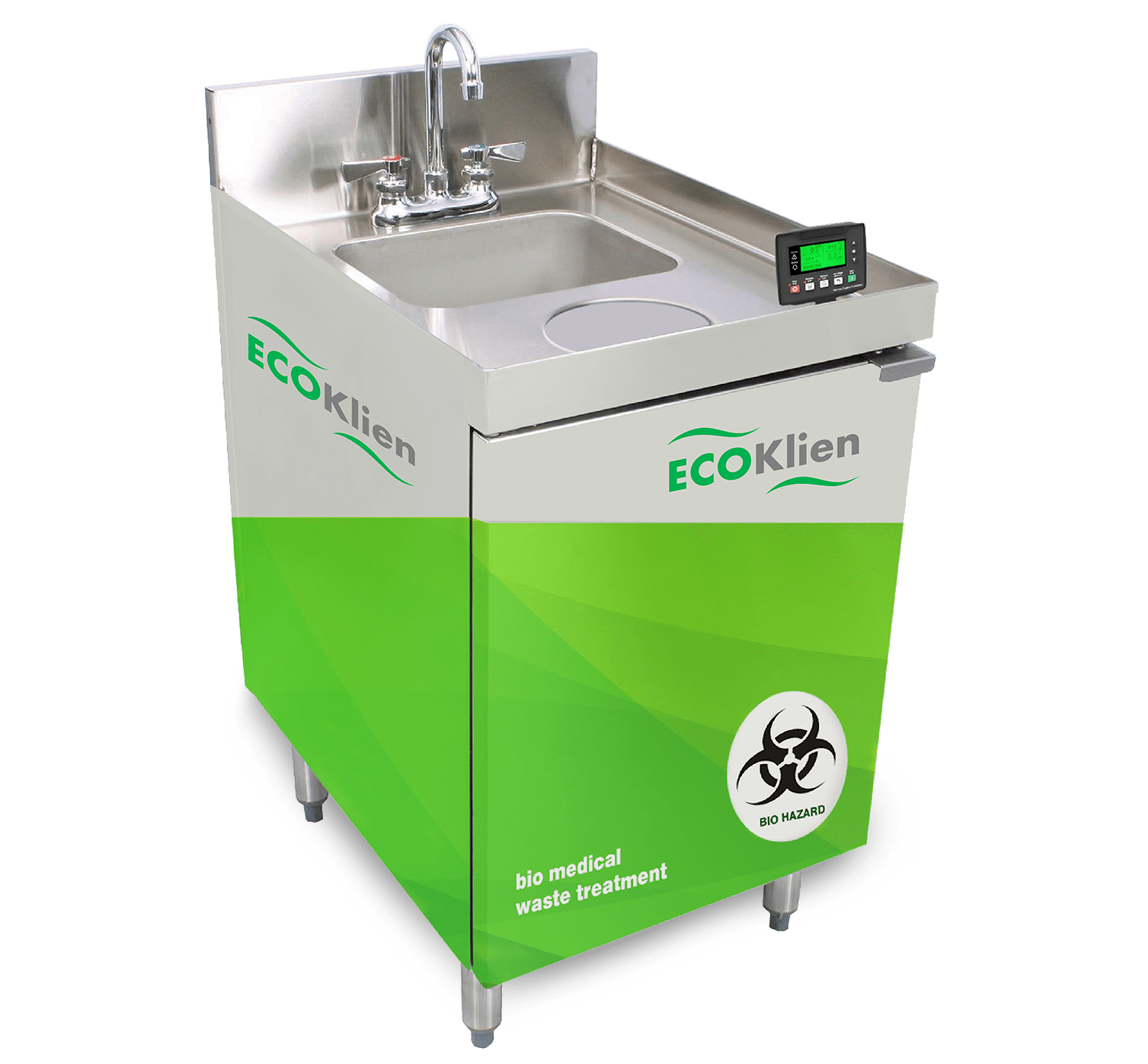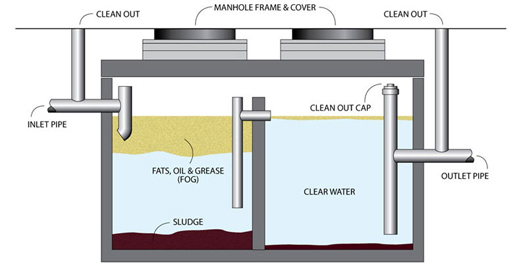Reliable Liquid Waste Disposal Melbourne: Safe and Effective Providers
Reliable Liquid Waste Disposal Melbourne: Safe and Effective Providers
Blog Article
Understanding the Comprehensive Refine of Fluid Garbage Disposal: Best Practices and Environmental Effect Factors To Consider
The management of liquid waste disposal is a diverse concern that requires a thorough understanding of numerous finest practices and their linked ecological influences. From the kinds of fluid waste created to the approaches used for collection, treatment, and last disposal, each step plays an important function in safeguarding ecosystems and public health and wellness.
Sorts Of Liquid Waste
Understanding the numerous kinds of liquid waste is vital for reliable management and disposal techniques. Liquid waste can be broadly classified into a number of kinds, each requiring special handling and treatment strategies.
Industrial liquid waste typically includes unsafe materials, including heavy steels, solvents, and chemicals, created throughout manufacturing processes. These wastes require strict regulative conformity to protect human health and wellness and the environment. Domestic liquid waste mostly describes wastewater produced from families, consisting of sewer and greywater, which, although less toxic, can still posture significant risks if poorly managed.
Agricultural fluid waste, consisting of drainage from farms, often includes fertilizers and pesticides that can bring about environmental degradation if not treated appropriately. Medical fluid waste, produced from health care centers, consists of contaminated fluids such as physical liquids and chemicals, requiring specialized disposal methods to avoid infection and environmental contamination.
Last but not least, oil and oil waste, typically produced by restaurants and vehicle sectors, can trigger serious obstructions in drain systems otherwise handled correctly. Recognizing these groups promotes targeted approaches for therapy, conformity with laws, and efficient disposal techniques, ultimately promoting environmental sustainability and public health safety and security.

Collection Methods
Reliable collection approaches are critical for the correct administration of liquid waste, making certain that it is collected securely and efficiently prior to treatment or disposal. Numerous strategies are utilized relying on the type of liquid waste created, the volume, and the specific characteristics of the waste.
One usual method is making use of dedicated collection storage tanks or sumps, which are designed to capture liquid waste at the source. These systems often incorporate pumps that facilitate the transfer of waste to bigger storage space containers or treatment centers. Furthermore, mobile collection units furnished with vacuum cleaner technology are used in circumstances where waste is generated intermittently or in hard-to-reach places.
For commercial setups, closed-loop systems can efficiently lessen spills and leakages, permitting the healing and reuse of fluid waste. It is likewise necessary to train employees on proper collection methods to alleviate risks related to unsafe materials.
Moreover, applying regular maintenance timetables for collection tools guarantees ideal efficiency and safety and security. The integration of innovative monitoring systems can enhance collection effectiveness by supplying real-time data on waste levels and prospective dangers. Overall, effective collection techniques are fundamental to lasting fluid waste monitoring methods.
Treatment Processes
Treatment processes play a crucial duty in the management of fluid waste, changing potentially dangerous materials into recyclable sources or risk-free effluents - liquid waste disposal. These processes can be extensively classified into physical, chemical, and biological methods, each customized to address details pollutants existing in the waste stream
Physical therapy methods, such as sedimentation and filtration, work by getting rid of put on hold solids and particle issue. These methods are commonly the initial step in the therapy chain, efficiently reducing the tons on succeeding processes. Chemical treatments entail the usage of reagents to counteract unsafe compounds, precipitate heavy metals, or oxidize natural pollutants, thus boosting the safety of the effluent.
Organic treatment procedures, consisting of triggered sludge systems and anaerobic digestion, profit from the all-natural abilities of microbes to deteriorate raw material. These methods are specifically reliable for wastewater having biodegradable contaminants. Advanced therapy technologies, such as membrane filtration and progressed oxidation procedures, are increasingly used to accomplish greater degrees of purification.
Integrating a More Bonuses combination of these therapy techniques not just ensures compliance with governing criteria yet additionally promotes ecological sustainability by recovering valuable sources from fluid waste.
Disposal Options
Exactly how can companies ensure the risk-free and responsible disposal of liquid waste? Reliable disposal options are vital for guarding public health and the from this source environment. The primary methods consist of land incineration, treatment, and disposal followed by discharge right into community wastewater systems.
Land disposal includes the careful containment of fluid waste in designated landfills, making sure that it does not seep right into bordering dirt or water. Incineration, on the other hand, topics liquid waste to heats, transforming it right into ash and gases, which need correct purification to minimize discharges. This method appropriates for hazardous wastes that can not be dealt with with standard methods.
In situations where fluid waste can be dealt with, companies might choose chemical or organic therapy processes to neutralize unsafe parts prior to releasing the dealt with effluent right into community systems. This course generally aligns with regulative needs, ensuring that the effluent meets safety requirements.
Ultimately, organizations need to conduct detailed analyses of each disposal alternative to establish its feasibility, taking into consideration variables such as waste composition, regulative compliance, and prospective threats to health and the environment. By picking ideal disposal techniques, organizations can add to a responsible waste management technique.
Environmental Impact
The environmental effect of fluid garbage disposal is an essential factor to consider for organizations seeking to lessen their eco-friendly footprint. Improper disposal approaches can lead to substantial contamination of water resources, soil degradation, and unfavorable impacts on local ecological communities. For example, dangerous liquids can leach into groundwater, posing risks to drinking water supplies and marine life. In addition, the discharge of unattended or improperly treated waste into surface area waters can lead to eutrophication, leading to oxygen exhaustion and the subsequent fatality of fish and other organisms.

To alleviate these impacts, organizations must embrace ideal techniques such as implementing extensive waste treatment procedures, promoting recycling and reuse, and sticking to governing standards. By taking a positive method to liquid waste administration, entities can significantly reduce their environmental footprint while sustaining lasting development goals. Inevitably, a comprehensive understanding find out here of the ecological impacts related to liquid garbage disposal is vital for informed decision-making and liable stewardship of natural deposits.
Final Thought
Efficient monitoring of liquid waste is critical for safeguarding ecological integrity and public wellness. Eventually, a comprehensive understanding of liquid waste disposal not only alleviates ecological impacts however additionally cultivates a dedication to accountable source administration and environmental stewardship.
The monitoring of fluid waste disposal is a diverse problem that requires a complete understanding of different best techniques and their associated ecological effects. From the types of liquid waste generated to the methods employed for collection, treatment, and last disposal, each action plays a critical role in guarding environments and public health and wellness.The ecological impact of fluid waste disposal is an essential factor to consider for organizations looking for to lessen their eco-friendly footprint. Ultimately, an extensive understanding of the ecological impacts connected with liquid waste disposal is crucial for notified decision-making and liable stewardship of natural sources.
Ultimately, a detailed understanding of liquid waste disposal not just minimizes environmental effects but additionally cultivates a commitment to liable resource management and ecological stewardship.
Report this page